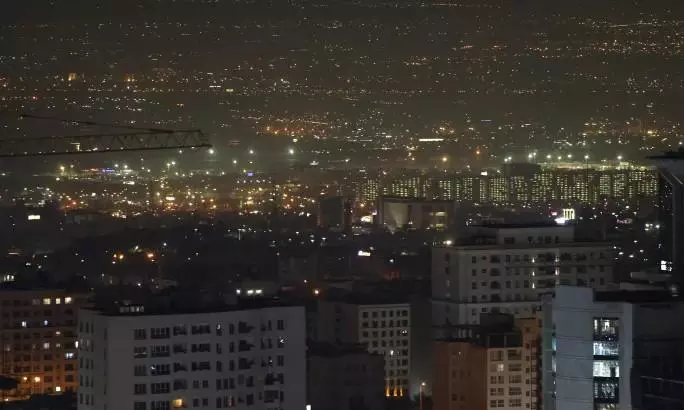
Israel tries not to provoke Iran even in retaliation; US says it ends here
text_fieldsExtensive,’ ‘precise,’ and ‘against military targets’ are the words the US used in response to the Israeli airstrikes in Iran following Iran’s attack, with Israel commenting the attack was complete, while the US advised Israel that it should mark the end of the military exchange between Israel and Iran.
The Israeli Defense Forces (IDF) confirmed that dozens of fighter jets conducted targeted attacks against Iranian missile production sites and air defences, particularly in the provinces of Tehran, Khuzestan, and Ilam. The strikes were reportedly carried out in multiple waves, causing several powerful explosions in key Iranian cities, including Tehran and Mashhad.
The Israeli military emphasized that the operation was a retaliatory measure against continued assaults from Iranian forces and proxies, which it claims have increased since early October. The most notable recent incident occurred on October 1, when Iran launched a barrage of approximately 180 ballistic missiles at Tel Aviv and Israeli military installations.
While Israel’s advanced air defence systems intercepted most of these missiles, some reached sensitive targets, including the Nevatim airbase, showcasing Iran’s ability to partially penetrate Israel’s defences. One individual was reportedly killed in the occupied West Bank during the missile strike.
In response, Israeli forces struck military targets within Iran. This marked one of the few times Israel has directly acknowledged attacks on Iranian territory, a significant shift from its typical approach to keeping its long-running shadow war with Iran clandestine. The Israeli broadcaster Kan reported that the mission involved precise strikes on a variety of military targets within Iran, which were intended to disrupt Iranian missile capabilities without escalating the conflict further.
The United States, while not directly involved in the airstrikes, played a consultative role with Israeli officials, advising measures that would minimize civilian casualties. A senior U.S. official characterized the operation as a proportional response to Iran’s recent missile assault, intended to serve as a deterrent against further aggression. The official also suggested that the attack should conclude the current phase of direct military exchanges between Israel and Iran, which have been sporadically recurring throughout the year.
Tehran’s airport remained operational, and state television reported that air defence systems had been activated in response to multiple explosions around the capital. Official media confirmed ongoing investigations into the source of the explosions and indicated that no casualties had been reported. Despite the initial restraint, some Iranian officials signalled that Tehran might still consider a limited military response.
Tensions between Israel and Iran have been escalating steadily in recent months, driven in part by broader regional conflicts involving Iranian-backed groups such as Hezbollah in Lebanon and Hamas in Gaza. Israel’s relationship with these groups has long been fraught, and recent ground operations by Israel in Gaza and clashes with Hezbollah along the Lebanese border have contributed to the broader regional volatility. Since early October, Israel’s military efforts have expanded to include defensive measures against multiple Iranian proxies operating out of Syria, Iraq, and Yemen.
The timing of the airstrikes is particularly sensitive, as Israel and Iran’s mutual hostilities threaten to embroil the United States. President Joe Biden has advised Israel to avoid targeting nuclear or oil facilities in Iran to prevent further escalation. Amid rising concerns, the U.S. recently deployed additional defensive resources to Israel, including a Terminal High Altitude Area Defense (THAAD) missile defence battery, to safeguard against potential attacks.
With the stakes of the conflict rising, both countries have expressed a desire to avoid full-scale war. However, recent incidents indicate a growing willingness to confront each other more directly. This marks a departure from the indirect, proxy-driven hostilities that have typically characterized Israel-Iran relations over the last several decades. For instance, Iran’s recent missile attack was partially attributed to Israel’s killing of Hamas leader Ismail Haniyeh in Tehran earlier this year and to support Hezbollah following Israel’s ground operations in Lebanon.
Despite mounting tensions, Israeli officials remain cautious, aiming to manage the risk of an ongoing war of attrition with Iran while simultaneously dealing with hostilities on multiple fronts. Israel’s defence minister recently reiterated the country’s commitment to responding forcefully to any attempts to harm Israeli citizens or compromise national security.






















